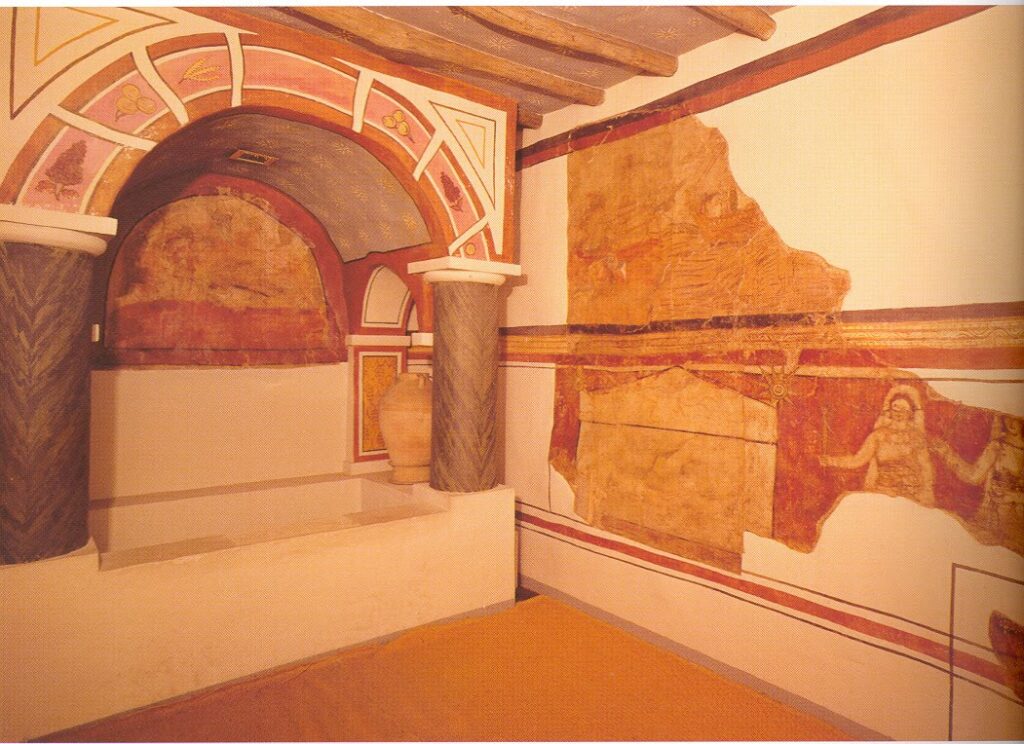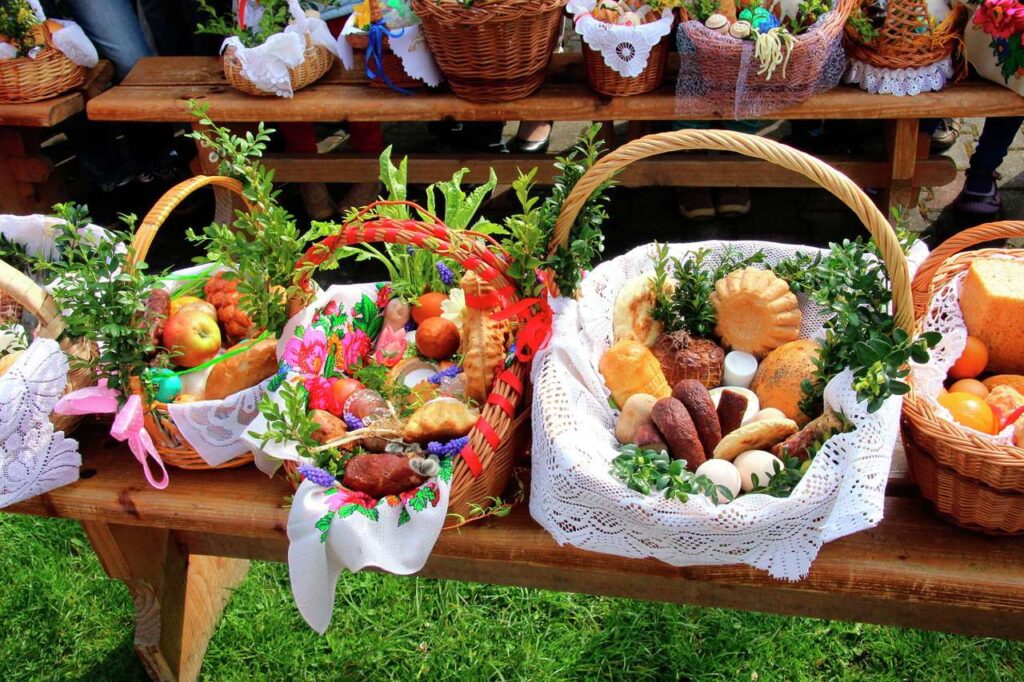
The church was uncovered by a team of archaeologists during two excavation campaigns in the city from 1931-32. The frescos were removed after their discovery and are preserved at Yale University Art Gallery.
Otherwise, what do those who are baptized for the sake of the dead? If those who are really dead are not raised, why at all are they baptized for their sake? And why are we in danger at every hour? I die every day. (1 Cor. 15:29-30)
St. Paul refers to the living being baptized for the sake of the dead, a practice otherwise unknown in the early church. But it seems to be a practice that the Corinthians were familiar with. “Why be baptized for the dead if Christ is not raised from the dead?” The apostle refers to the liturgical practice of the Corinthians to underscore the point he has been making in the epistle: Christ was raised form the dead. Why else are we in church or doing anything as members of the Church? Nothing we do makes sense if Christ is not risen from the dead.
Sin has brought death into the world and we are baptized in the hope that our dead bodies will be raised again in the resurrection. If there is no resurrection, our baptism is meaningless and our bodies remain as dead as they are now.
St. John Chrysostom, Homilies on the Epistles to the Corinthians 40.2
The apostle might be referring to the baptism of those in bed and about to die or new-born infants about to die. Why baptize the dying and those as-good-as-dead if there is no Resurrection of the body?
But he seems to be referring not to deathbed baptisms but to people who are being baptized for vicariously for the deceased. People in the city of Corinth were generally concerned about the fate of the dead. Perhaps the living Corinthian Christians were baptized on behalf of their friends and neighbors–as well as their family members–who had not had the opportunity to become Christians during their lifetimes. If baptism was critical for sharing the Resurrection, how else could the living best serve the deceased?
Wherever the Gospel was preached, the new converts were always concerned about the fates of the non-Christian ancestors. Pagan Greeks came to see the poets and philosophers as the equivalent of the prophets in ancient Israel, so their ancestors had some access to the Good News just as ancient Jews did. In Gaul, it was common to bless pagan graves with holy water, baptizing the dead who were buried there. In other places, the prayers for the dead–especially on All Souls’ Day–were the most important prayers a new Christian could offer.
Prayers for the dead. Baptism on behalf of the dead. Blessing the pagan graves. These were all ways the living Christians showed their love and concern for their non-Christian dead relatives, trying to include the dead in the Kingdom of God. No one is ever saved alone. Salvation is, by definition, a communal event.


